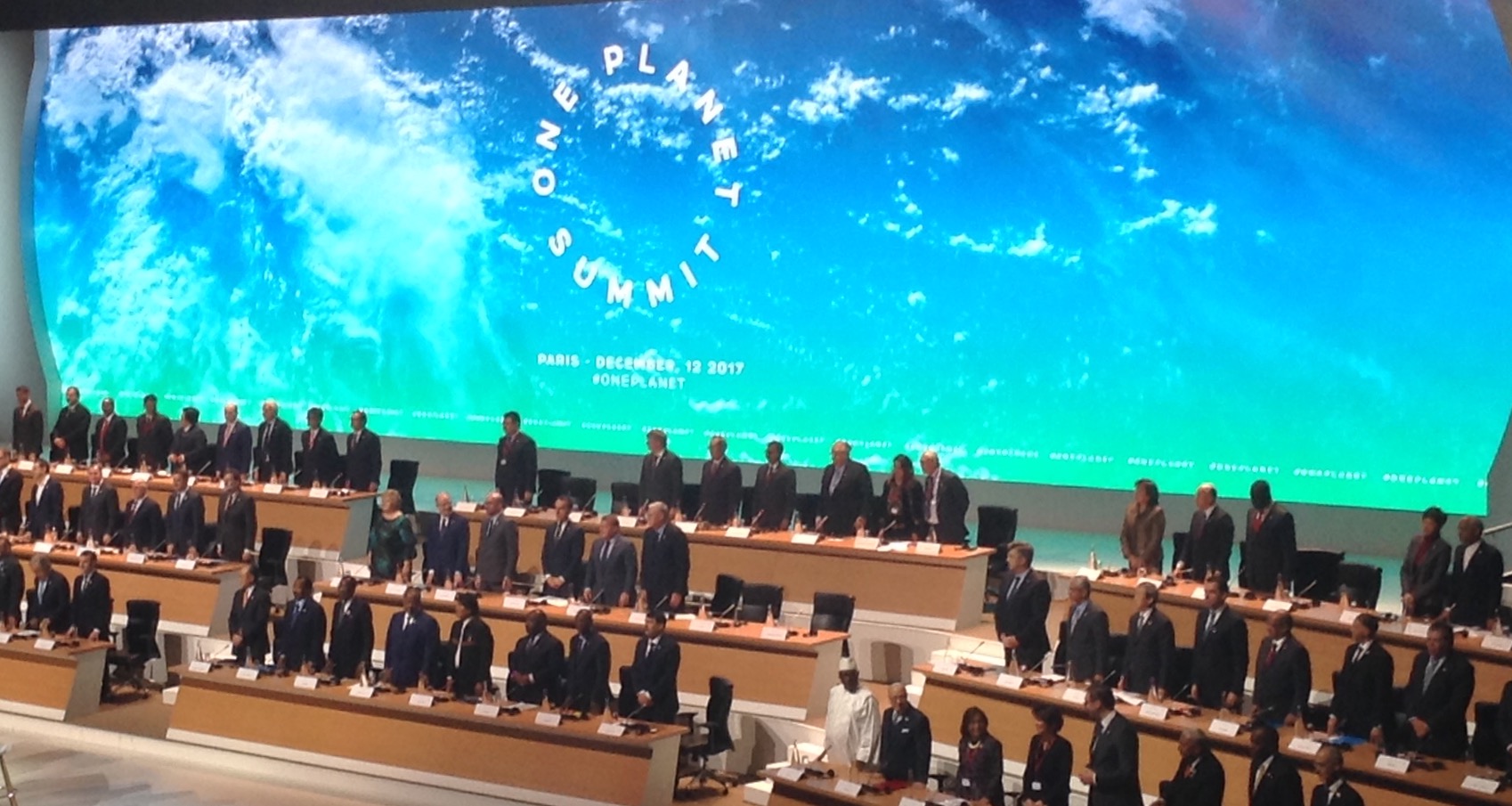By Oluwatobi Opusunju

President Buhari is welcomed to the Summit in Paris by France’s Emmanuel Macron
Nigeria’s President Muhammadu Buhari has harped on technology as a panacea for addressing the adverse impacts of climate change such as temperature rise, erratic rainfalls, sand storms, desertification, low agricultural yields, drying up of water bodies like Lake Chad, gully erosions and constant flooding which have now become daily realities in sub-Saharan Africa and rest of the globe. Buhari, who was speaking the recent One Planet Summit in Paris, said respite can come for millions of people in the use of technology across industries.
“Government is actively promoting technologies and practices such as sustainable land management, climate resilient agriculture, water efficiency, clean energy, and skills for reducing greenhouse gas emissions” – President Buhari
The Summit with the theme: ‘Climate Change Financing’ had over 60 heads of states and governments as well as representatives of non-governmental and private organisations in attendance. He called on the international community to support the country financially and technically in its quest to reduce the impact of climate change.
“Technology will be a powerful tool to simultaneously address climate change and advance development, and having just come out of recession, we are under no illusion of the challenges that we face in Nigeria. We cannot implement our nationally determined contribution without adequate financial, technical and capacity building support from the developed countries,” said Buhari who reiterated that external support is imperative for the country to achieve its national goal at fending the negative effects of climate change.
Many experts believe technological innovations are key to helping mankind achieve the goal of addressing climate change in addition to global policy agreements such as the Paris Agreement on Climate Change. One article by Alex Gray and published by the World Economic Forum last year identified ‘five tech innovations that could save us from climate change.’
“In Nigeria, we are looking at insurance-based proposals to deal with loss, damage and adaptation to the poor, vulnerable and hard-to-reach groups. Risk mitigation through insurance must benefit those groups who currently have negligible access to any form of indemnity coverage. Vulnerable groups will also benefit from new technologies and ways to make insurance schemes affordable, including through long term premium support,” Buhari told the global audience.
He said Nigeria would require external assistance in the following areas: “a long term solution for a source of clean power, which can be achieved through private investments to create economic competitiveness for industrialization, job creation and agricultural programmes throughout the country; and the inclusion of Nigeria in Climate Regional Programmes, especially strong financial support to our planned project for the replenishment of the Lake Chad.”
He explained that, the long term solution will ensure sustained livelihood for rural and urban communities, and permanently address the conditions conducive to the spread of violent extremism and terrorism, and stem illegal migration especially of our youths abroad
Speaking on the country’s effort so far in tackling the effect of climate change, he said the Federal Government is currently tightening the existing governance structure in Nigeria for more effective implementation of climate change activities especially through technology.
“Government is actively promoting technologies and practices such as sustainable land management, climate resilient agriculture, water efficiency, clean energy, and skills for reducing greenhouse gas emissions,” he said.
“We are also looking at accelerating research and development on facilitating access to climate friendly technologies, through technology pooling and collective approach to financing research and development, regulating restrictive practices in licensing agreements and anti-competitive uses of intellectual property and international declaration on climate technologies,” he concluded
































